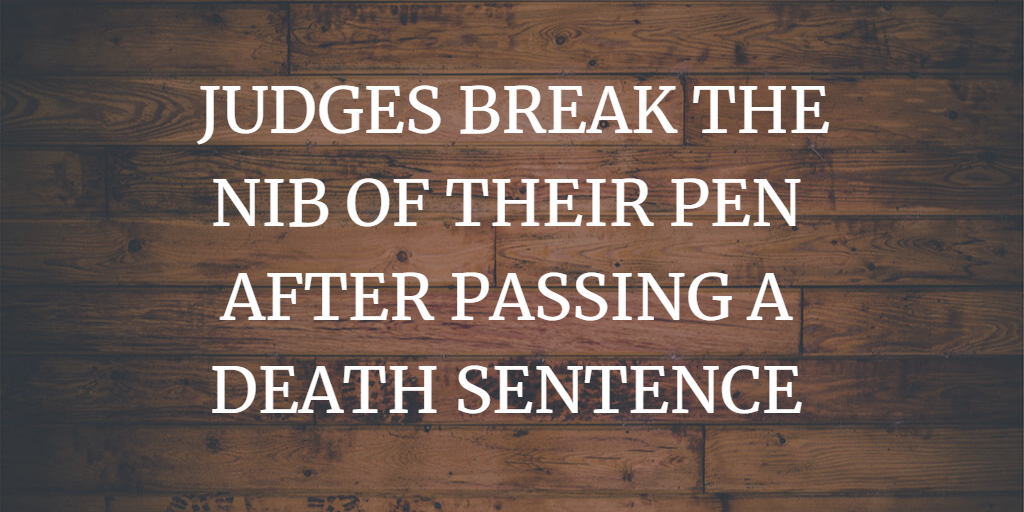WHY JUDGES BREAK THE NIB OF THEIR PEN AFTER PASSING A DEATH SENTENCE IN INDIA ?

Table of Contents
Introduction
Historical Roots of the Tradition
Symbolism and Meaning Behind Breaking the Nib
Contemporary Relevance
Conclusion
Introduction
The act of breaking the nib of a pen after passing a death sentence is a long-standing tradition among judges in India. This practice carries deep symbolism and historical roots, offering a glimpse into the gravity and responsibility associated with the death penalty. This blog will explore the origins of this tradition, its significance, and its relevance in contemporary Indian judicial practice.
Historical Roots of the Tradition
The tradition of breaking the nib after passing a death sentence can be traced back to the Mughal era in India. It was during this period that the Mughal Emperor would break the quill used to sign off on death sentences. This practice was then adopted by British judges in colonial India and continued after India gained independence.
Symbolism and Meaning Behind Breaking the Nib
The act of breaking the nib after passing a death sentence carries significant symbolism:
A heavy heart: Breaking the nib is a symbolic gesture representing the judge's heavy heart in passing such a grave sentence. It underscores the immense responsibility and emotional burden associated with deciding someone's fate.
Irrevocability: Once the nib is broken, it can no longer be used to write. This symbolizes the finality and irrevocability of a death sentence, as it cannot be undone once it has been passed.
Unique nature of the sentence: The broken nib signifies that the pen has served its purpose and will not be used again for the same purpose. It emphasizes the unique nature of death sentences, which are not to be treated as commonplace decisions.
Contemporary Relevance
While the tradition of breaking the nib may seem archaic to some, it continues to be practiced by some judges in India as a reminder of the solemnity and gravity of their duty. It serves as a poignant symbol of the emotional and ethical weight carried by those who must decide the fate of another human being.
Conclusion
The tradition of breaking the nib after passing a death sentence in India is a powerful reminder of the solemn responsibility judges hold when deciding the fate of an individual. This symbolic gesture, rooted in historical practice, emphasizes the gravity, irrevocability, and unique nature of death sentences. As such, it continues to hold relevance in contemporary judicial practice, reminding judges and society alike of the profound implications of such decisions.


